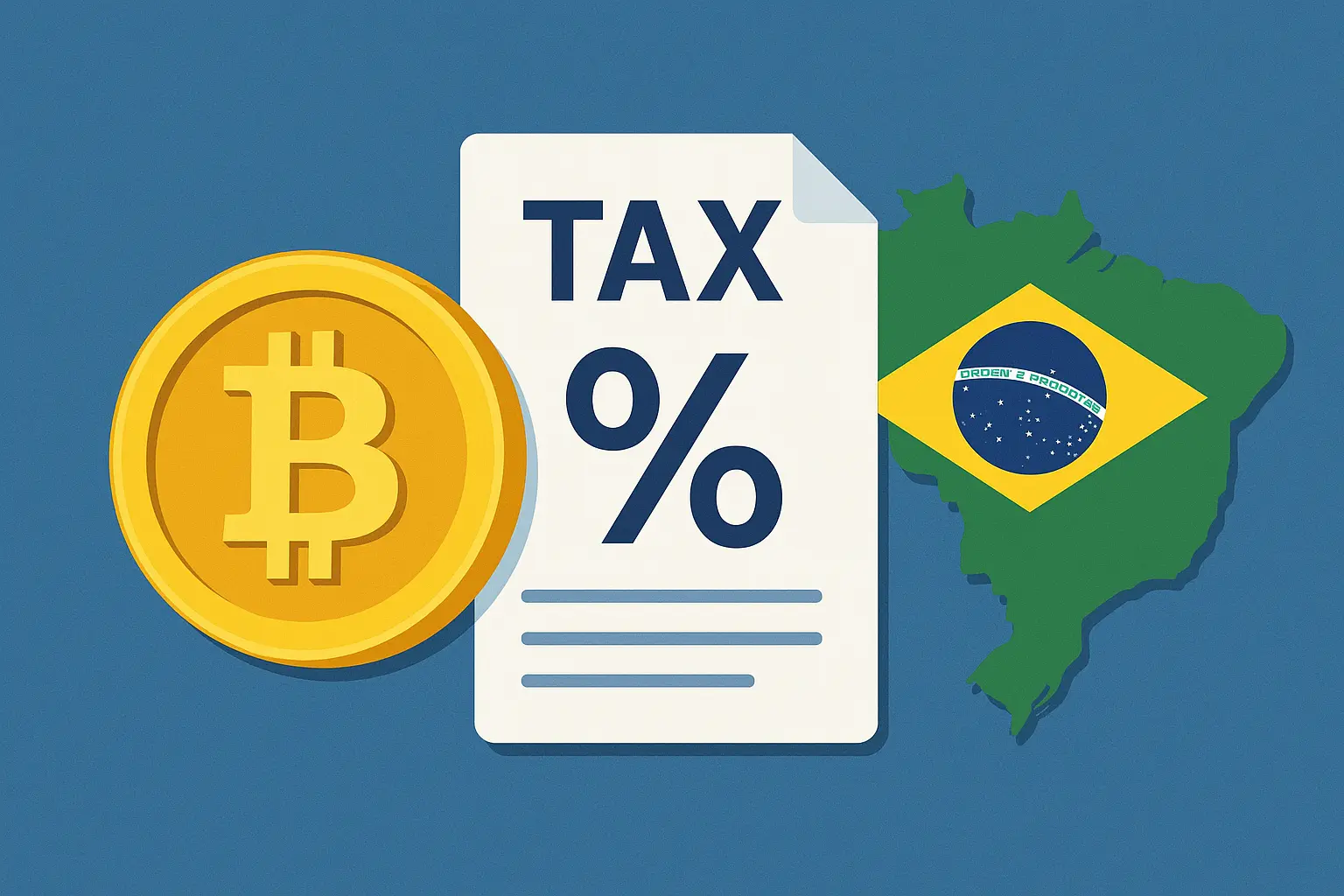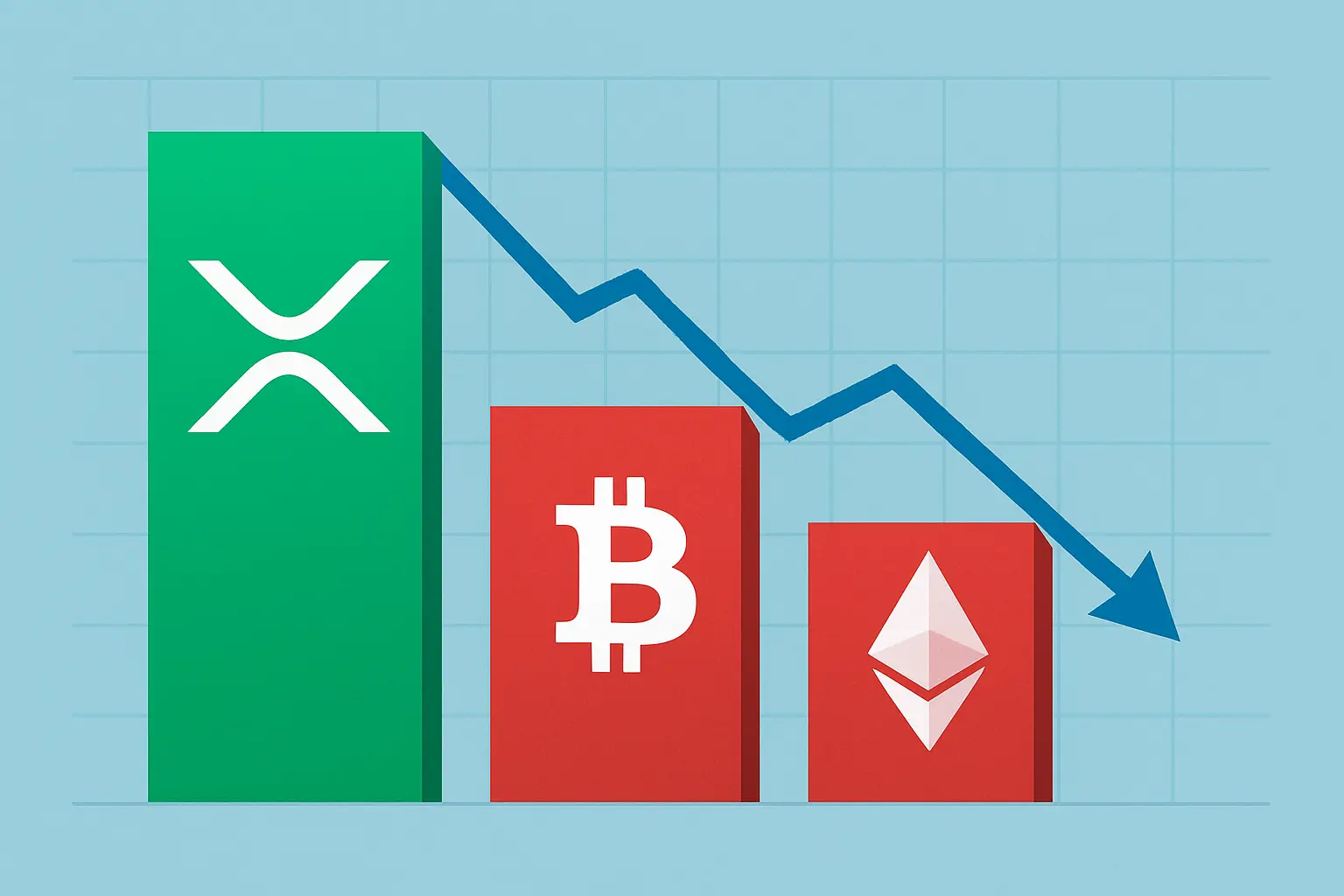Cryptocurrency News
Brazil Moves To Tax International Crypto Transfers As Stablecoins Transform Cross-Border Payments

Introduction
Brazil is entering a pivotal moment in its financial-regulatory landscape as the government considers imposing a tax on international cryptocurrency transfers. The proposal aims to bring digital-asset payments—especially stablecoin flows—under the long-standing financial-transaction tax known as the IOF. This development comes at a time when stablecoins have quickly evolved from a speculative investment instrument into an alternative mechanism for moving money across borders. Their rapid adoption has triggered concerns among Brazilian authorities over lost tax revenue, unmonitored capital outflows, regulatory loopholes, and the risk of illicit finance.
Why Is Brazil Considering This Tax Change?
In recent years, Brazil has emerged as one of the fastest-growing cryptocurrency markets in the world. A major contributor to this boom is the surge in stablecoins—digital assets pegged to fiat currencies, typically the US dollar. Stablecoins have become especially popular for cross-border payments and international remittances because they enable faster, cheaper, and more discreet transfers compared to traditional banking or foreign-exchange channels. Instead of going through banks and paying foreign-exchange fees, Brazilian businesses and individuals can simply buy a stablecoin, send it abroad, and convert it back to local currency at the destination. This practice has allowed many to bypass regulated financial systems entirely, effectively circumventing the IOF, which applies to most foreign-exchange operations.
Brazilian regulators have grown increasingly concerned about this trend. For them, stablecoins represent more than an innovation—they pose a regulatory challenge. While traditional financial institutions are required to report and document cross-border flows, similar obligations do not always exist for crypto platforms, wallets, or peer-to-peer networks. As a result, the government fears that billions of dollars may be flowing in and out of the country without adequate oversight, undermining tax collection, hampering monetary policy visibility, and creating potential vulnerabilities for money-laundering or unregistered capital movements. Officials view the expansion of the IOF tax as a necessary adjustment to bring these crypto transactions back within the country’s financial perimeter.
The Rise Of Stablecoins In Brazil’s Cross-Border Economy
A major reason for the government’s focus on stablecoins is their dramatic growth within Brazil’s economy. Over the past several years, stablecoins have become integrated into everyday financial behavior. Businesses use them to pay suppliers abroad, individuals rely on them to send remittances, and traders leverage them as a hedge against Brazil’s volatile currency environment. Their appeal lies in their simplicity: users can avoid bank delays, fluctuating exchange spreads, and traditional financial scrutiny. For a country like Brazil—where bureaucratic hurdles often slow down financial activity—stablecoins offer unprecedented convenience.
Authorities, however, argue that convenience must not come at the cost of regulatory blind spots. In their view, stablecoins have turned into a modern substitute for foreign exchange. This transition challenges the existing tax system, as conventional FX operations generate substantial government revenue through the IOF. When users shift to stablecoins as a workaround, the government loses a slice of revenue that has historically funded public initiatives. The proposed tax thus reflects an attempt to level the playing field: if stablecoins serve the same economic purpose as foreign currency transactions, they should be taxed similarly.
How The IOF Tax Could Apply To Crypto Transfers?
The IOF—short for Imposto sobre Operações Financeiras—is a tax applied to various financial operations including credit, insurance, foreign-exchange transactions, and investments. Extending this tax to cryptocurrency transfers is not just a technical adjustment but a structural shift in how Brazil views digital assets. If the proposal becomes law, any international transfer involving cryptocurrency could be subject to the IOF, especially when stablecoins are involved. This means that when a person uses a stablecoin to send value abroad, the transaction would no longer escape taxation; instead, it would incur similar costs to traditional FX operations.
The government is still debating the details, including how to determine which transactions qualify as “international” and how to verify the movement of funds through decentralized systems. Regulators are also exploring methods to ensure that exchanges, wallet providers, and payment platforms can reliably report cross-border crypto flows. While such requirements may increase the administrative burden on service providers, the government believes they are necessary to ensure consistency and fairness across the financial system.
Alignment With Global Crypto-Asset Reporting Standards
A crucial element of Brazil’s strategy is its alignment with the global Crypto-Asset Reporting Framework, widely known as CARF. This international standard allows jurisdictions to share information on cryptocurrency accounts held abroad by their residents. By adopting CARF, Brazil aims to gain much greater visibility into its citizens’ crypto holdings, particularly those stored on offshore platforms. The government expects this transparency to help reduce tax evasion, detect hidden wealth, and strengthen enforcement against illicit cross-border flows.
The adoption of CARF also signals Brazil’s commitment to participating in the international effort to regulate digital assets more effectively. As more countries endorse global reporting standards, cryptocurrency activity is becoming increasingly interconnected across borders. In this context, Brazil wants to avoid being left behind or becoming a haven for unmonitored transactions. Implementing the IOF tax on crypto transfers aligns neatly with this broader goal of harmonizing domestic policy with global norms.
Central Bank Rule Changes And Their Impact On Stablecoins
Alongside the potential tax change, the Central Bank of Brazil is introducing new rules that classify stablecoin purchases, sales, and transfers as foreign-exchange operations. This classification carries significant implications. It means that transactions involving stablecoins will be subject to the same regulations, reporting protocols, and oversight traditionally applied to the buying and selling of foreign currencies. Exchanges handling stablecoins will be required to adhere to stricter standards, including enhanced due diligence, anti-money laundering controls, and transparent reporting practices.
Under the new framework, stablecoin transactions conducted for international purposes—such as sending money to another country—will fall under the Central Bank’s supervisory authority. This shift effectively moves stablecoins into the formal financial system. While this may increase compliance demands for crypto service providers, the government argues that the measure is essential for protecting consumers and preventing the misuse of digital assets.
Legal And Enforcement Measures To Address Illicit Use
The Brazilian government is also working on legal reforms that focus on enforcement. One key proposal would allow authorities to seize and liquidate cryptocurrency assets tied to criminal organizations even before a conviction is issued. This is part of a broader “anti-faction” strategy aimed at dismantling illicit financial networks that rely on digital assets. By enabling faster intervention, authorities hope to prevent criminals from transferring or hiding their assets via crypto.
These measures demonstrate the government’s increasing determination to treat digital assets with the same seriousness as traditional financial instruments. The combination of taxation, reporting standards, regulatory oversight, and legal tools marks a mature approach toward the crypto sector. Rather than banning or discouraging innovation, Brazil is seeking to integrate crypto into a robust and transparent regulatory system.
Potential Impact On Users, Businesses, And The Crypto Market
The introduction of a tax on international crypto transfers will have wide-ranging effects. For individual users, especially those who rely on stablecoins for remittances, costs may increase. Businesses that use stablecoins to pay international suppliers could also face higher expenses and new compliance requirements. Service providers—such as crypto exchanges and fintech platforms—will need to invest in enhanced reporting systems and risk-management procedures to meet regulatory expectations.
From the government’s perspective, the new tax could recover significant revenue previously lost through untaxed crypto flows. It also offers a way to strengthen oversight and ensure that digital assets do not undermine the country’s economic visibility. However, regulators must strike a balance: overly burdensome rules could push crypto activity underground or discourage legitimate innovation in Brazil’s rapidly growing fintech sector.
On the global front, Brazil’s move could set a precedent for other nations grappling with the rise of stablecoins. As more countries explore ways to integrate crypto into their regulatory frameworks, Brazil’s approach—rooted in taxation, transparency, and alignment with global standards—may serve as a model.
Conclusion
Brazil’s consideration of a tax on international cryptocurrency transfers marks a major evolution in its approach to digital-asset regulation. Driven by the explosive growth of stablecoins and their use as alternatives to traditional foreign-exchange channels, the government is taking steps to ensure that cross-border crypto flows are properly monitored and taxed. By aligning with international reporting standards, updating Central Bank regulations, and strengthening legal enforcement, Brazil aims to bring stability and transparency to a rapidly expanding sector.
While the implementation of these reforms will pose challenges for users, businesses, and crypto platforms, they also promise to create a more regulated, fair, and predictable environment for digital-asset activity. As Brazil navigates this transition, the world will be watching closely, as its decisions may influence how other countries respond to the global rise of crypto-powered cross-border payments.











